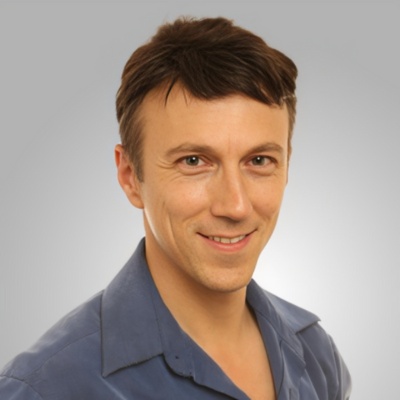
Daniel Kraft
Physician and futurist, specialist in health innovation. He inspires with his vision of tomorrow's medicine, showing that science and technology can improve life with ethics and creativity.
Biography / Speaker Info
Daniel Kraft received his M.D. degree from Stanford Medical School and completed his residency in Internal Medicine and Pediatrics at Harvard's combined program at Massachusetts General Hospital and Boston Children's Hospital. He subsequently completed fellowships in Hematology/Oncology and Bone Marrow Transplantation. His experience spans clinical practice and biomedical research, with publications in high impact scientific journals such as Nature and Science, as well as multiple patents in medical devices, immunology and stem cells.
He is the founder and chair of NextMed Health (formerly known as Exponential Medicine), a program and community that annually brings together innovators and leaders in technology and healthcare to explore the impact of rapidly developing technologies such as Artificial Intelligence (AI), digital health and regenerative medicine. In addition, he has served as faculty chair for the Chair of Medicine at Singularity University since its inception in 2008. His role focuses on the application of exponential technologies to accelerate and improve the future of healthcare.
Kraft is also a noted inventor and entrepreneur. He is the inventor of the MarrowMiner, an FDA-approved device for minimally invasive bone marrow harvesting. He founded RegenMed Systems, a company dedicated to developing regenerative therapies based on the study of adult stem cells, and Digital.Health, focused on the rapid advancement of digital tools and solutions in healthcare. He was also a finalist for NASA astronaut selection and has conducted research in aerospace medicine, underscoring his broad scientific and innovative profile.
Through his lectures, Dr. Kraft offers a futuristic view of medicine, advocating a proactive rather than reactive approach. His central themes include the use of smartphones and wearable devices as diagnostic platforms, the application of AI to free physicians from repetitive tasks, and the concept of treating aging through regenerative medicine and synthetic biology.










